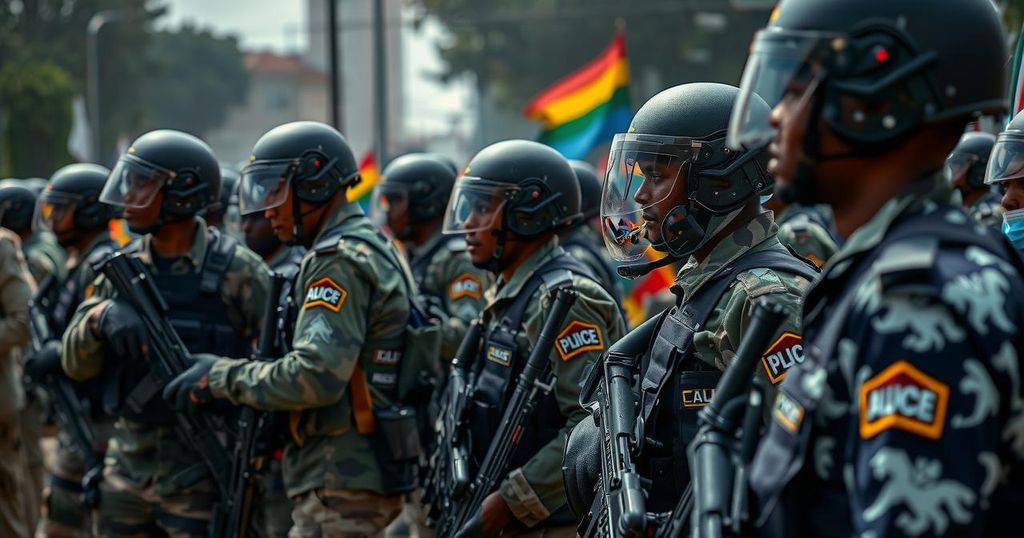In Mozambique, protests against alleged electoral fraud in the recent presidential elections have led to tragic casualties, including children. The police have been accused of using excessive force during these protests, resulting in numerous deaths. The opposition, led by Venâncio Mondlane, contests the legitimacy of the elections, while citizens express deep-seated frustrations regarding governance and socioeconomic conditions.
In Mozambique, a recent wave of protests against the outcome of the presidential elections has led to tragic casualties, including children. The protests were sparked by alleged electoral fraud in which the ruling party, Frelimo, was declared the victor with 71% of the vote, a result that was vehemently contested by the opposition candidate, Venâncio Mondlane. Amidst calls for protest, many citizens took to banging pots and pans in a nightly demonstration, leading to a violent response from police forces, resulting in the shooting deaths of several young individuals, including a 16-year-old boy named Antonio Juaqim. Eyewitness accounts and reports indicate significant unrest and dissatisfaction with the governmental authority, prompting discussions on the legitimacy of the electoral process and the excessive use of force by law enforcement.
The situation in Mozambique has escalated following the controversial elections held on October 24, which instigated protests led by opposition figures claiming widespread electoral fraud. The political landscape has grown increasingly volatile, with the ruling party, Frelimo, having maintained power since independence nearly five decades ago. In recent nights, citizens have responded to opposition leader Mondlane’s call by collectively demonstrating through noise, symbolizing their discontent with Frelimo’s long-standing authority. The backlash from authorities has been stark, with reports from human rights organizations indicating that approximately 40 individuals, including numerous children, have died due to police actions during these protests.
The reported police conduct has drawn criticism from various sectors, including human rights groups and political analysts, who argue that the excessive force employed demonstrates a concerning trend of suppression against dissent. Many young Mozambicans express disillusionment with the political system, citing economic hardships and a desire for greater opportunities as key issues. The events following the elections represent a critical juncture for Mozambique, revealing deep-rooted frustrations among the youth who seek a government accountable to their needs and aspirations.
The recent crisis in Mozambique revolves around the contentious presidential election results, where the ruling party Frelimo was declared the winner in a tightly disputed electoral process. The political climate in Mozambique has been historically fraught, with Frelimo ruling since the nation’s independence. Allegations of electoral fraud were made by the main opposition party, led by Venâncio Mondlane, who claimed significant irregularities in the voting process. The protests that followed were characterized by acts of civil disobedience primarily conducted at night, culminating in violent confrontations between demonstrators and police.
The tragic loss of young lives amidst the protests in Mozambique has highlighted profound societal frustrations regarding governance, economic hardship, and political representation. As claims of electoral fraud continue to reverberate, the response from authorities raises serious concerns about human rights and the legitimacy of the state’s use of force against its citizens. Overarching these events is a growing desire among the populace, especially the youth, for a government that prioritizes their future and addresses their legitimate grievances.
Original Source: www.bbc.com






